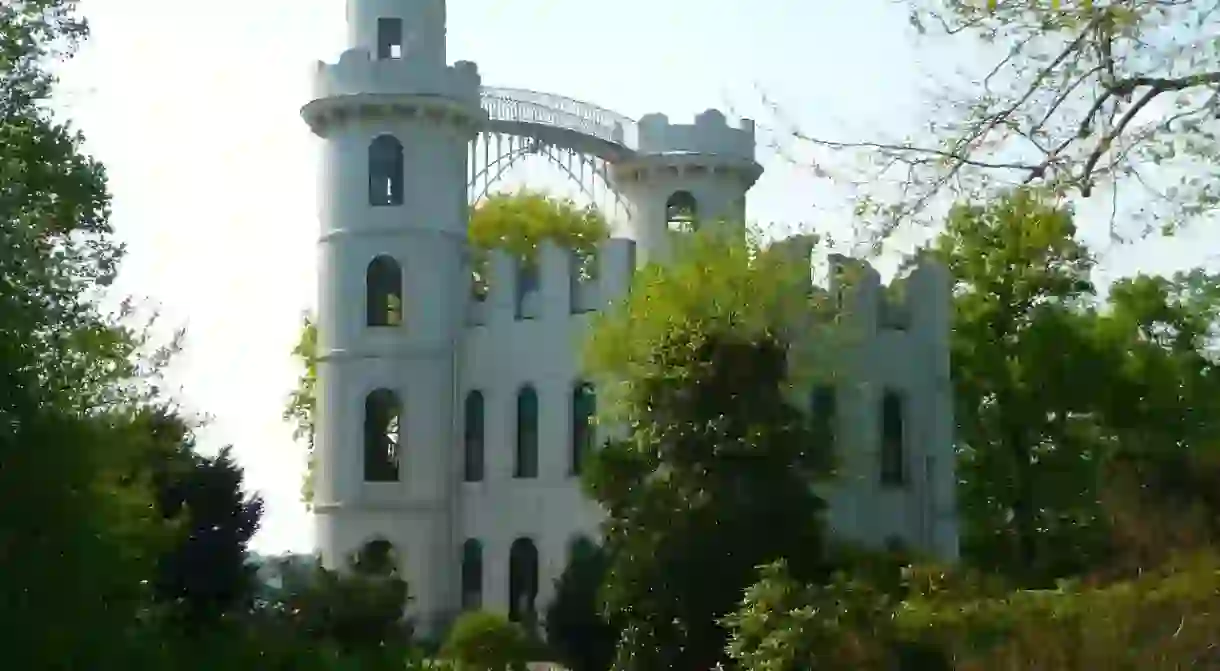Berlin's Stunning UNESCO Heritage Sites You Need to Visit at Least Once

Berlin is a city alive with history, best reflected in its architecture – from palaces and museums through to modern sites, these are spaces that have survived world wars and decades of diversion. As a result, Berlin and its surrounding areas are filled with must-see UNESCO World Heritage Sites. Here’s our pick of the best.
Museum Island
Museum

Berlin’s iconic Museum Island houses world-renowned collections within five beautifully restored museums that all bear the UNESCO World Heritage seal of approval. The Pergamon Museum, Bode Museum, Neues Museum, Alte National Gallery and Altes Museum, are historical and architectural wonders, delighting visitors with Ancient Egyptian relics, Byzantium artefacts and century-spanning art. Encompassing some of the oldest museums in the city, Museum Island became a UNESCO World Heritage Site in 1999 after surviving World War II and the Cold War.
Modernism Housing Estates Berlin
Building

Berlin Modernism Housing Estates is an ensemble of six subsidized housing blocks that are dotted around the city. Built in the Weimar era in the early 20th century, the estates were recognised as UNESCO World Heritage Sites for their architectural brilliance. Famous architects Bruno Taut, Martin Wagner and Walter Gropius were some of the leader brains behind the buildings, which have stood the test of time. The estates have had a huge influence on the development of housing around the world, and embody the technical and aesthetic innovation Germany has mastered. While true modernism architecture buffs will enjoy visiting all six estates, exploring them all might be over the top for others. For visitors who want to check out one of the sites, the best to head to is Gartenstadt Falkenberg in Treptower. Bright, colourful and exciting, this is probably the most charming estate of all six and it’s located just 30 minutes out of central Berlin by public transport.
Pfaueninsel
Forest

Pfaueninsel (Peacock Island), located between Berlin and Potsdam, is an idyllic island housing a fairytale-like castle, lush surroundings and of course, a muster of peacocks. The white and blue castle and its flower-filled gardens invite visitors to explore its majesty at their own pace, while the surrounding area is home to a flurry of nature and, rather unusually, peacocks, who can be spotted strutting the lawns with their magnificent tails on show. A UNESCO World Heritage Site since 1990, every Berlin tourist should visit this secluded spot at least once.
Sanssouci Palace and Park
Building

Sanssouci Palace has been drawing in Berlin tourists for years, causing many to dub its surrounding town Potsdam as Berlin’s Versailles. Built in the 1740s as a summer retreat Prussian king Frederick the Great, the palace comprises ten meticulously decorated rooms. The sprawling surrounding gardens are also a treat, complete with an equally charming palace, Neues Palais, massive sculptures, fountains, a Chinese teahouse. A pristine mix of truly European architecture and surroundings, Sanssouci Park is inscribed as UNESCO World Heritage, recognised for its cultural value and the exceptional quality of the area.
Schloss Cecilienhof
Building

Another Potsdam palace with UNESCO World Heritage recognition is Schloss Cecilienhof. Sporting a more subdued style, compared to the opulent wonders found in Sanssouci Park, this spot is reminiscent of English Tudor architecture. It was occupied by the last members of the German royal family, Wilhelm and Cecilie of Prussia, however, what truly gives this place historical distinction is the role that it played in World War II – Cecilienhof functioned as the site of the summit known as the Potsdam Conference, where the official peace negotiations took place that ultimately ended World War II and broke up Germany. Steeped in history and boasting a unique style, this castle and its surrounding gardens are certainly worth a visit.
Chorin Monastery
Forest, Monastery, Ruins

Chorin Monastery in Schorfheide promises a landscape rich with lakes and nature and an impressive relic of Gothic architecture. Built in the 13th century, the former monastery remains one of the most important monuments of early brick Gothic architecture to surviving in Brandenburg. Encompassed in the idyllic landscape within the Schorfheide-Chorin biosphere preserve, this medieval ruin and architectural marvel is steeped in history and remains a popular excursion from Berlin. Located about an hour drive from the city centre, the Cistercian monastery is now a significant place for cultural events and festivals, as well as a venue for weddings and a popular tourist attraction.
Schloss Glienicke
Museum, Forest

Glienicke Palace brings a Mediterranean charm to the shores of the River Havel. The passion-project of Prince Charles of Prussia, the palace was inspired by his first trip to Italy in 1823. Upon returning to Berlin, he set out to build an Italian villa and Mediterranean-inspired landscape on the sandy banks of Brandenburg. Since 1995, Glienicke Palace has been restored and refurbished to its former glory, after years of laying unused. The neoclassical palace now houses a range of cultural events and a permanent exhibition, while looking out over perfectly groomed gardens and the nearby river, create a magical ambience on the outskirts of Berlin.













